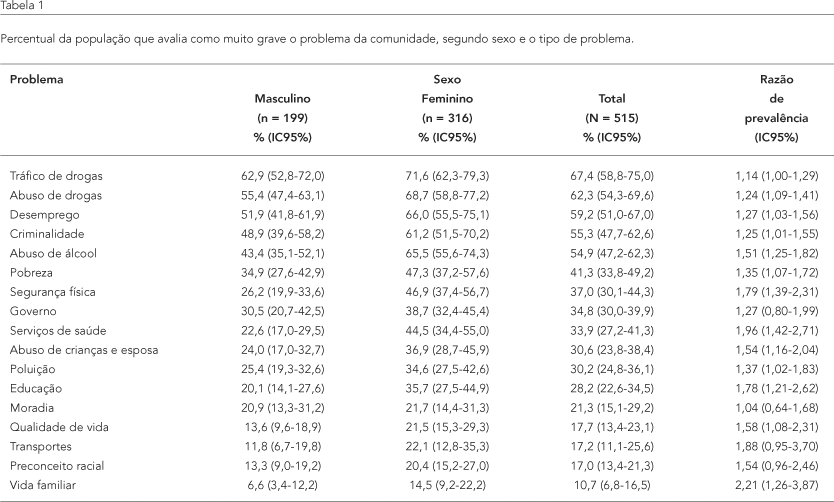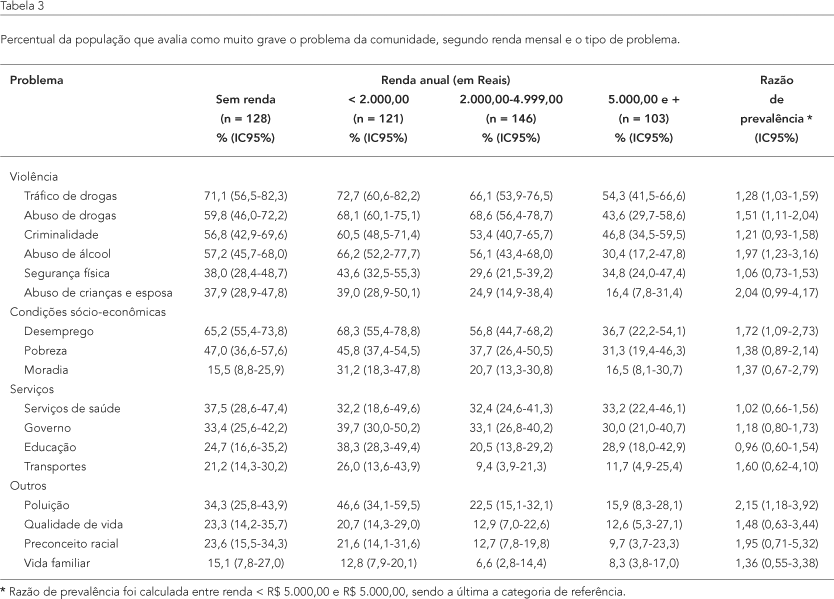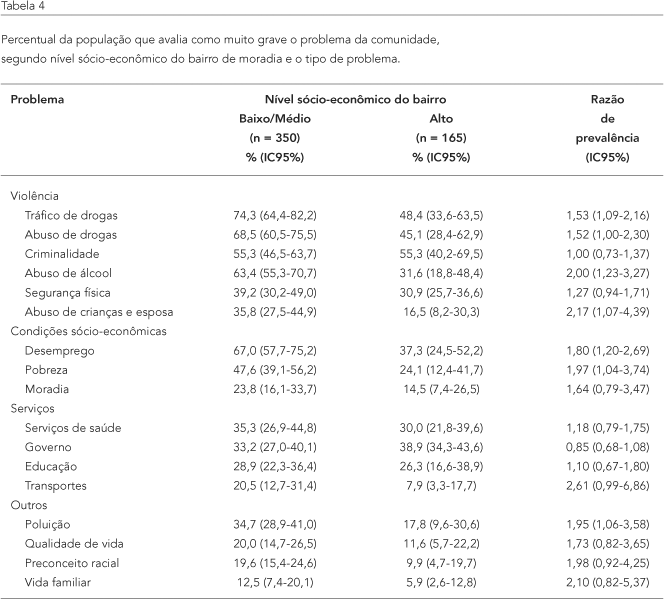A cross-sectional study was designed to identify which social problems from a list of 17 were considered important and to analyze differences in perception among interviewees according to socio-demographic variables and presence of common mental disorders. A household survey was performed in Campinas, São Paulo, Brazil, with a stratified cluster sample of urban residents aged 14 years or older (N = 515) using the WHO/SUPRE-MISS interview and SRQ-20. Weighted prevalence and crude prevalence ratio with respective 95%CI were calculated. Multiple analyses were performed using Poisson regression. Drug traffic, drug abuse, unemployment, crime, and alcohol abuse were considered severe by more than 45% of the sample. Women and individuals living in medium-low income areas attributed greater severity to drug traffic, alcohol and drug abuse, child and spousal abuse, unemployment, and poverty. Females and individuals with positive SRQ-20 identified problems related to education as more severe. Differences in perception according to socioeconomic status and gender were observed, with women and low-income residents showing the greatest susceptibility.
Social Problems; Violence; Mental Health; Gender Identity




